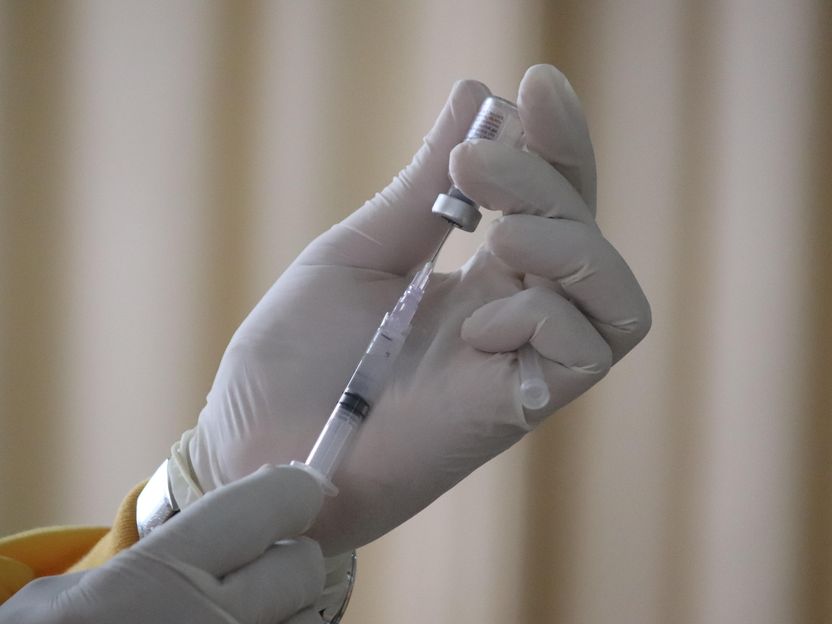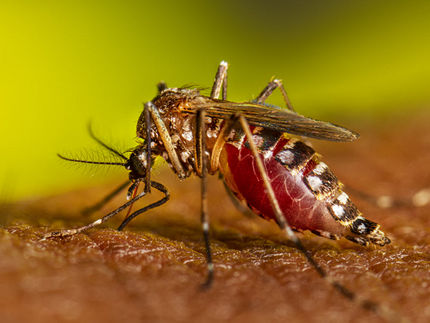Takeda’s Dengue Vaccine Candidate Provides Continued Protection Against Dengue Fever Through 4.5 Years
In Long-Term Exploratory Analysis, TAK-003 Prevented 84% of Hospitalizations and 61% of Symptomatic Dengue Illness Overall
Takeda announced that its dengue vaccine candidate, TAK-003, prevented 84% of hospitalized dengue cases and 61% of symptomatic dengue cases, with no important safety risks identified, in the overall population including both seropositive and seronegative individuals through four and a half years (54 months) after vaccination in the pivotal Phase 3 Tetravalent Immunization against Dengue Efficacy Study (TIDES) trial. These data were presented on June 9, 2022, at the 8th Northern European Conference on Travel Medicine (NECTM8), with plans to feature the results at additional upcoming conferences.

Photo by Mufid Majnun on Unsplash
“The burden of dengue is far reaching, and over half of the world’s population is at risk of dengue each year,” said Eng Eong Ooi, Ph.D., M.D., Duke-NUS Medical School, Singapore. “There is an urgent need for impactful prevention tools to combat the disease. The long-term TIDES results indicate that TAK-003 could be an important addition to the limited tools we have to prevent dengue, particularly given the demonstrated protection against hospitalizations.”
Through four and a half years, TAK-003 demonstrated 84.1% vaccine efficacy (VE) (95% CI: 77.8, 88.6) against hospitalized dengue, with 85.9% VE (78.7, 90.7) in seropositive individuals and 79.3% VE (63.5, 88.2) in seronegative individuals. TAK-003 also demonstrated overall VE of 61.2% (95% CI: 56.0, 65.8) against virologically-confirmed dengue (VCD), with 64.2% VE (58.4, 69.2) in seropositive individuals and 53.5% VE (41.6, 62.9) in seronegative individuals. Observations of VE varied by serotype and remained consistent with previously reported results. TAK-003 was generally well tolerated, and there were no important safety risks identified. No evidence of disease enhancement was observed over the 54-month follow-up exploratory analysis.
“Dengue is a complex, global disease, and the TIDES trial was designed to account for this, including both dengue-naïve and dengue-exposed populations in Latin America and Asia where outbreaks are prevalent, with evaluation over four and a half years,” said Gary Dubin, President, Global Vaccine Business Unit at Takeda. “We are proud that the results continue to demonstrate the efficacy and safety of TAK-003 and its ability to provide long-term protection against dengue.”
These new long-term results supplement previously published TIDES data that demonstrated the candidate vaccine met its primary endpoint of overall VE against VCD, with 80.2% efficacy at 12-months follow-up, as well as all secondary endpoints for which there were a sufficient number of dengue cases at 18-months follow-up, including 90.4% VE against hospitalized dengue. While the long-term follow-up for the primary two-dose series has been completed, the TIDES trial remains ongoing to evaluate the safety and efficacy of a booster dose. The TIDES trial is Takeda’s largest interventional clinical trial to date, enrolling more than 20,000 healthy children and adolescents four to 16 years of age, across eight dengue-endemic countries, over the past four and a half years.
TAK-003 is currently undergoing regulatory review for the prevention of dengue disease in children and adults in the European Union and select dengue-endemic countries.
Most read news
Other news from the department research and development

Get the life science industry in your inbox
By submitting this form you agree that LUMITOS AG will send you the newsletter(s) selected above by email. Your data will not be passed on to third parties. Your data will be stored and processed in accordance with our data protection regulations. LUMITOS may contact you by email for the purpose of advertising or market and opinion surveys. You can revoke your consent at any time without giving reasons to LUMITOS AG, Ernst-Augustin-Str. 2, 12489 Berlin, Germany or by e-mail at revoke@lumitos.com with effect for the future. In addition, each email contains a link to unsubscribe from the corresponding newsletter.























































